AI based cameras are programmed with machine learning and computer vision technologies and they can analyze and perform several additional functions than the traditional cameras. They provide innovative and diversified applications across various industries. These cameras are used in a wide range of applications like facial recognition, vehicle number identification, traffic monitoring, law enforcement, etc. According to our estimates, the public & social sector holds approximately 40% share in the AI based camera market, followed by retail, automotive, healthcare, and BFSI. Smart cities are a major application area for AI based camera market ecosystem. They are mainly used for surveillance and traffic monitoring. In New York, around 998 people were arrested through facial recognition technology in 2018. Further, in Australia, AI based cameras are used to monitor drivers who use cell phones illegally while driving and to send a warning notification. However, repeated offenders are fined heavily. Meanwhile, China has planned to install around 570 million smart cameras across the country by 2021. Since most of the developed and developing economies are moving towards the adoption of smart city projects, the AI based cameras market ecosystem will witness higher demand in the future.
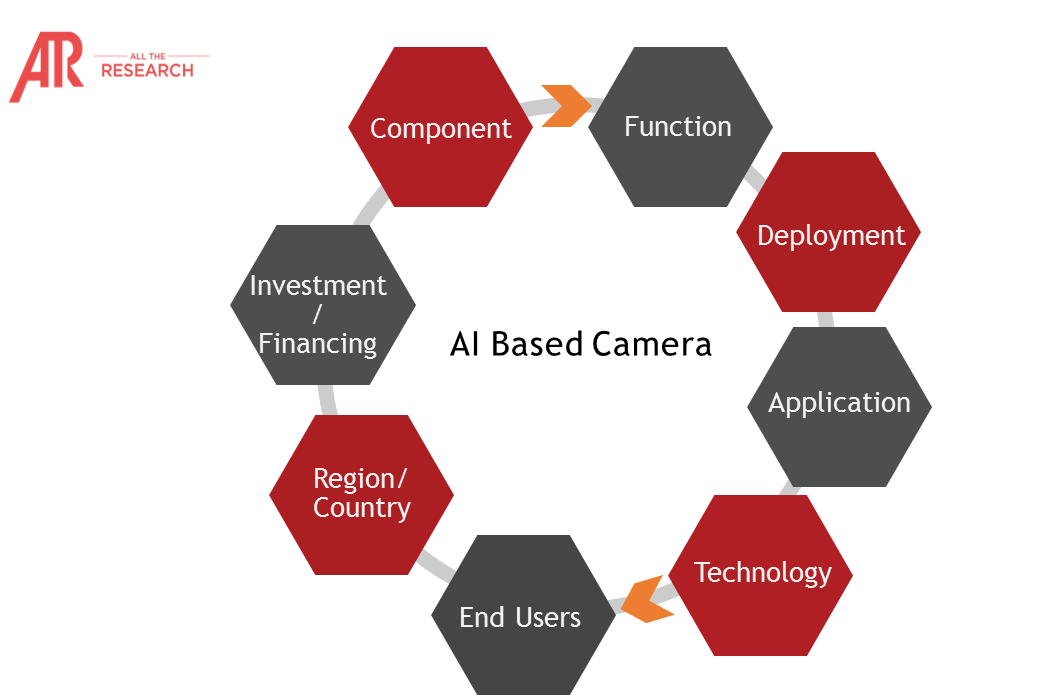
Computer vision technology is a branch of artificial intelligence that is programmed in AI based camera software to monitor, interpret, and analyze the situation, using deep learning algorithms. Image classification in AI based cameras helps classify images to distinguish between persons, objects, etc., by using the previously stored training datasets. Object detection and tracking identifies the object and track the movement of the particular object from different frames by using deep learning algorithms.
In Retail, AI based cameras help analyze footfalls more accurately. These cameras can also identify customers visiting the stores frequently and tag them as loyal customers in the retailer’s database. So, whenever those customers visit the store, the camera sends an alert to salespersons about the loyal customers. These are some of the enhanced applications of AI based cameras.
In Healthcare, computer vision is used especially in skincare applications. Skin IO, a Chicago-based company, developed a deep learning algorithm to identify skin cancer using mobile phone images. In the automotive sector, AI based cameras are deployed in the ADAS system. It alerts the driver when the vehicle goes closer to other vehicles or if a pedestrian is approaching closer to the moving vehicle. These are a few of the notable industries which have realized the potential of AI based cameras.
Smartphones with AI based camera applications can identify the subject in a camera frame. It can identify a person through facial recognition and classify images based on their type, such as tree, food, etc. This feature is currently adopted by major smartphone giants such as Huawei Technologies Co., Ltd., Apple Inc., Google LLC, Samsung Electronics, BBK Electronics, etc. Retail is another sector that is rapidly adopting AI based cameras for improving customer experience. Big retail giants like Walmart and Amazon Go have adopted AI based cameras for security & surveillance purposes and to measure customer satisfaction.
Walmart has installed AI based cameras in more than 1000 stores to reduce theft and identify customer satisfaction. Amazon Go uses AI camera to completely track customer purchases. Customers enter the store, pick up the required items, and leave the store without waiting on long queues. The camera automatically detects the products that are purchased by the customers and the final bill is then sent to the customer’s amazon account. Other big retailers who installed AI based cameras for other applications are Target, Lowes, etc.
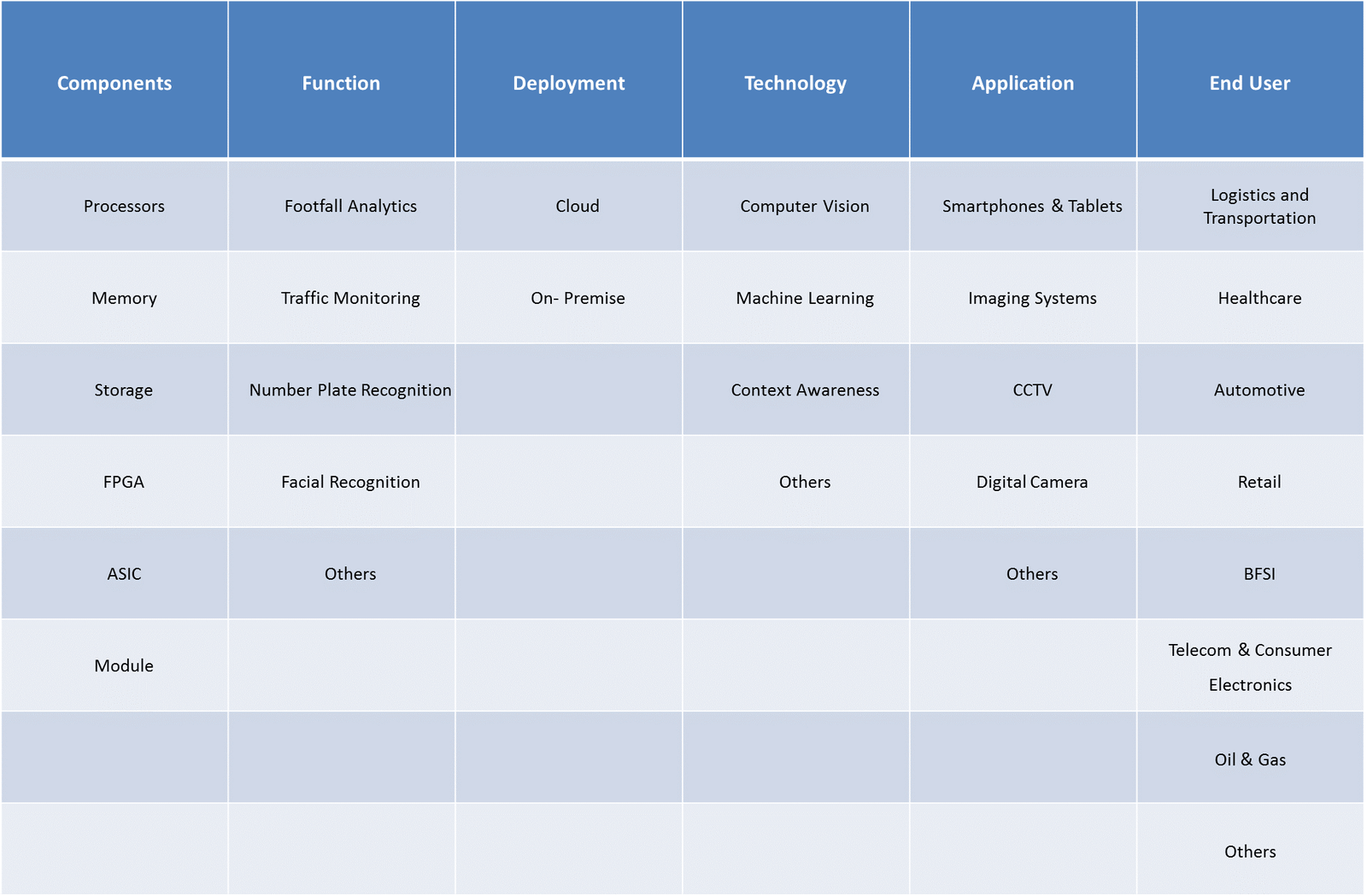
Rapid technological advancements have resulted in the growth of the AI based camera market. Hardware will account for more than 35% of spending made on smart cities, as of 2019. Processor manufacturers like Nvidia, Qualcomm, Samsung, IBM, and Intel will also have higher demand. More than USD 75Bn is likely to be spent on smart city projects worldwide, among which the US and China occupy the first two positions. The US, China, the UK, UAE, Singapore, Australia, and India are some countries witnessing major transformations due to smart city projects, which contribute to the demand for AI based cameras. The Middle East and Africa will invest more than USD 2 Bn by 2021. Asia Pacific is to witness major transformations and its spending on AI systems is expected to grow at a CAGR of more than 35% between 2018 and 2022. These are some of the factors that will contribute to the growth of the AI based camera ecosystem.
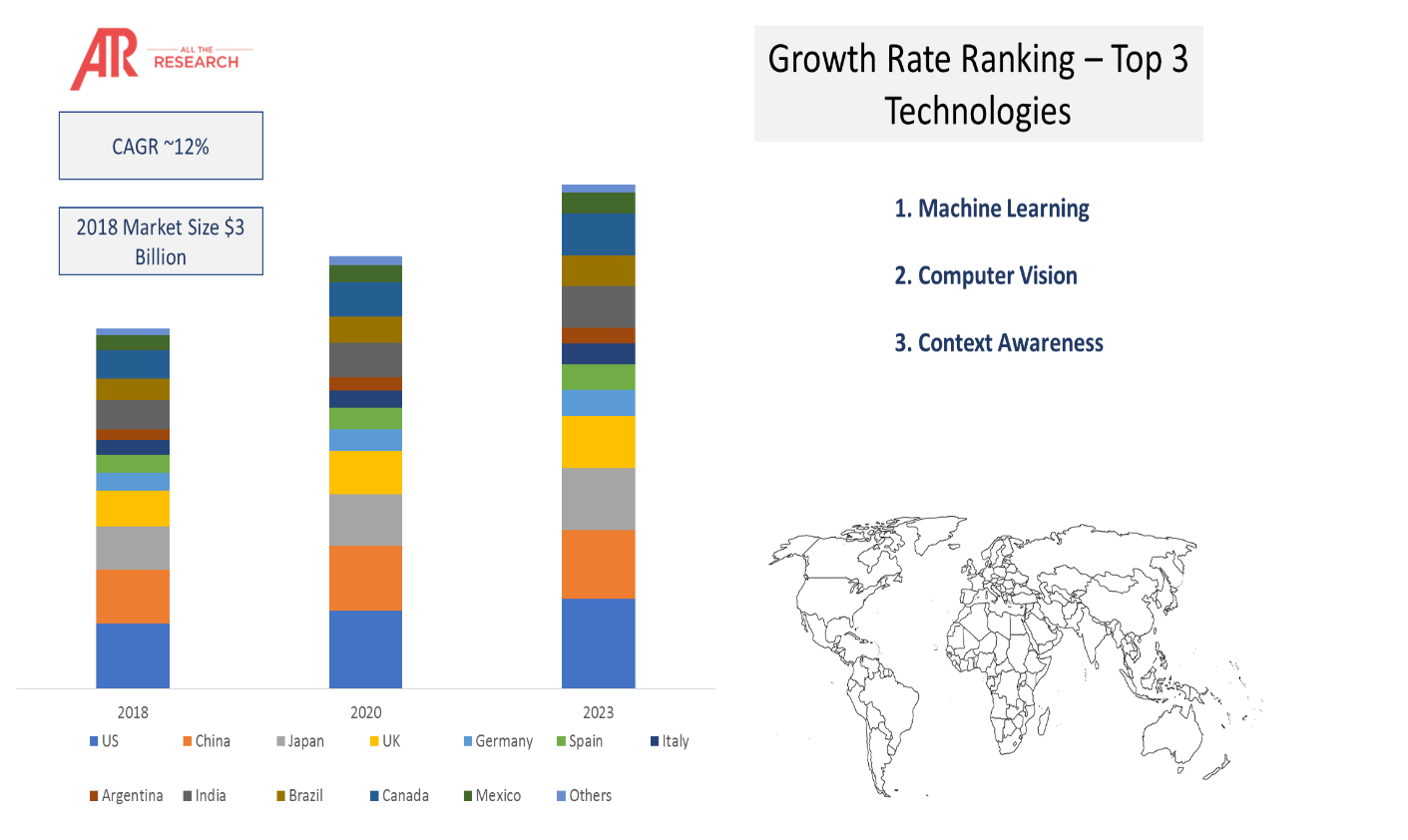
There are many trends that are having an impact on the market forecast. These, when evaluated from a company’s perspective, can drive growth. Our numerous consulting projects have generated sizeable synergies across all regions and all sizes of companies.
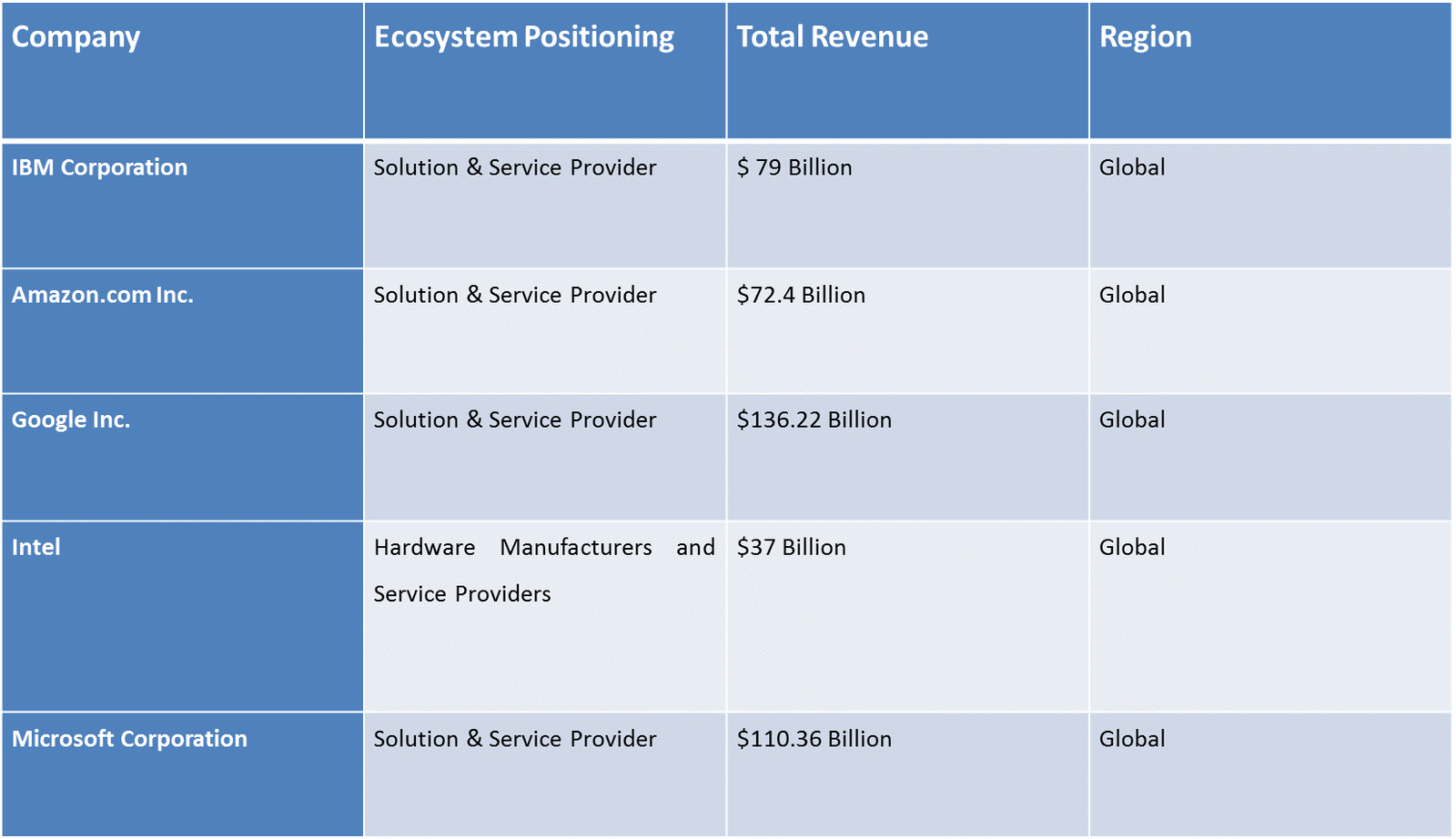
Very few markets have the interconnectivity with other markets. Our Interconnectivity module focuses on the key nodes of heterogenous markets in detail. Facial Recognition, Cloud computing, and Automotive markets are some of our key researched markets.
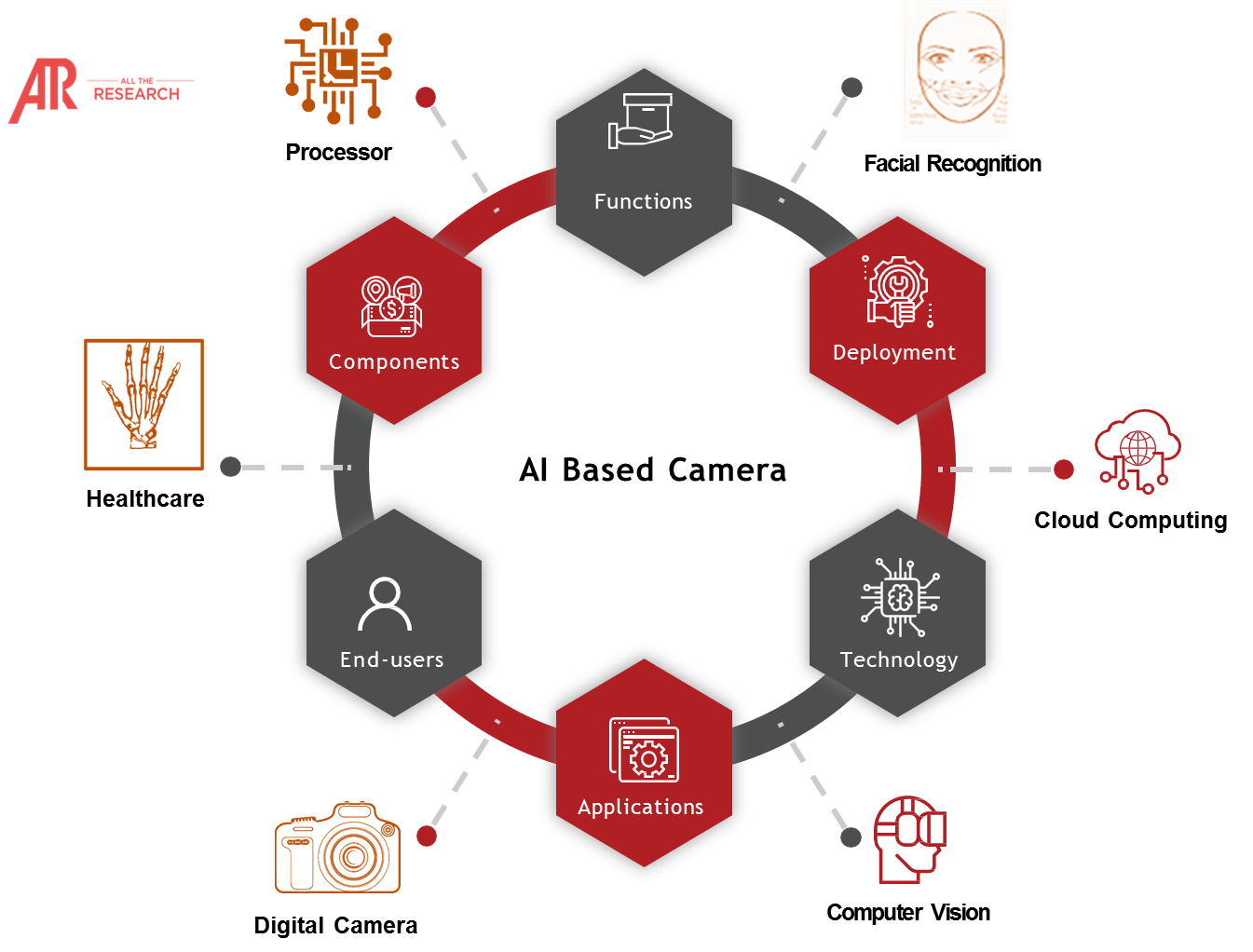
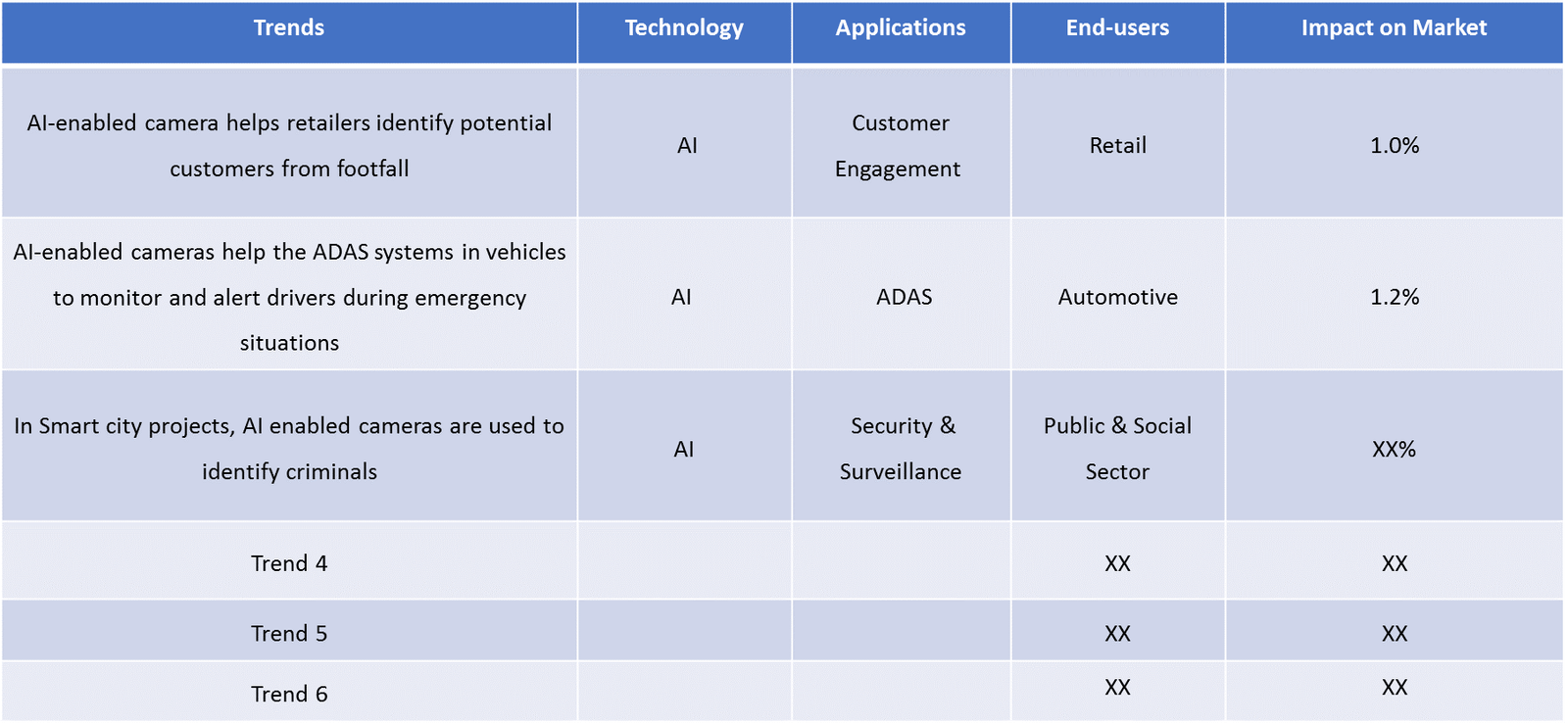

Ask for free product review call with the author

Share your specific research requirements for a customized report

Request for due diligence and consumer centric studies

Request for study updates, segment specific and country level reports
Table of Content
